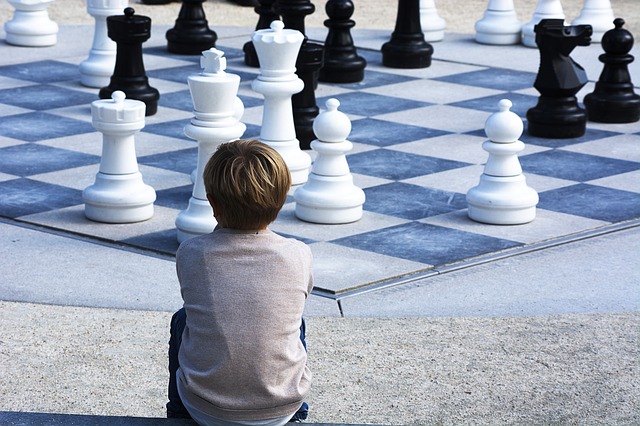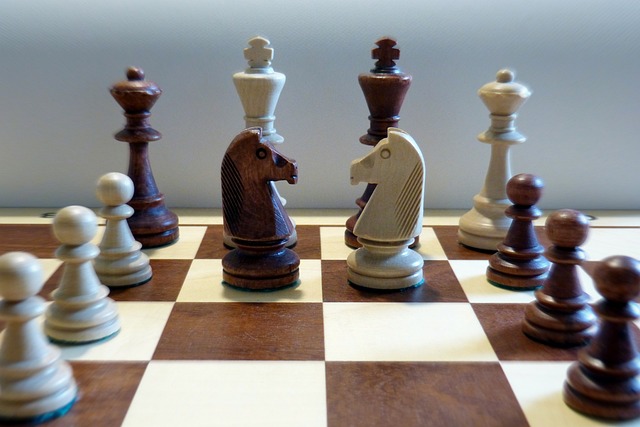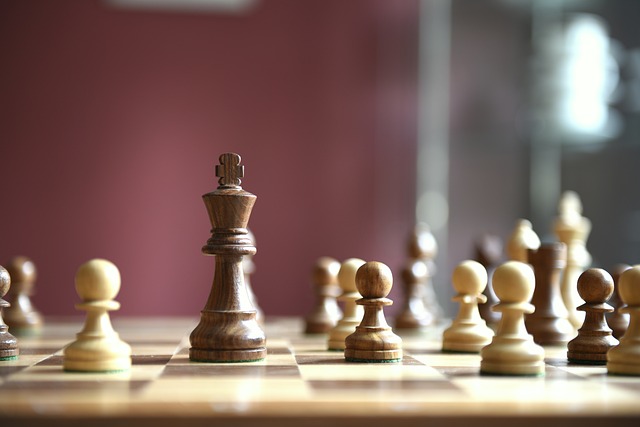Chess, an age-old game of strategy and intellect, has captured the hearts and minds of millions around the globe. While it may appear as just a board game to some, there is a deeper essence to chess that extends far beyond its 64 squares and intricate pieces.
In this thought-provoking exploration, we delve into the profound purpose that chess serves, unraveling its hidden layers of wisdom and significance.
What Makes Chess More Than Just a Game?
Chess transcends its classification as a mere game by offering a unique blend of entertainment, intellectual stimulation, and artistic expression. Beyond the clashing of chess pieces on a checkered battlefield, it becomes a captivating narrative where strategic moves and tactical decisions unfold.
The depth and complexity of chess draw players into a world where every move carries weight and consequences, creating an immersive experience that goes far beyond traditional gaming.
Can Chess Teach Us Important Life Lessons?
Chess serves as a masterful teacher, imparting invaluable life lessons that extend beyond the board. In the realm of chess, players learn the art of patience, understanding the need to carefully plan their moves and wait for the opportune moment to strike.
Perseverance becomes a fundamental virtue as setbacks and challenges inevitably arise. Through victories and defeats, players develop resilience and the ability to bounce back stronger, embracing the lessons learned and continually honing their skills.
How Does Chess Sharpen Our Strategic Thinking?
Chess is a playground for strategic thinking, where every move demands foresight, analysis, and anticipation of the opponent’s response. Players are compelled to think several steps ahead, considering multiple possibilities and outcomes.
This constant mental exercise fosters a sharpened ability to formulate long-term plans, evaluate risks, and adapt strategies on the fly. The intricacies of chess nurture a strategic mindset that extends beyond the board, influencing decision-making in various aspects of life.
Why Is Chess Considered the Ultimate Battle of Minds?

At its core, chess represents a captivating battle of wits and intellect, earning its reputation as the ultimate battle of minds. It pits two individuals against each other, challenging their cognitive abilities, creativity, and analytical thinking.
The clash of ideas and strategies on the chessboard becomes a testament to human ingenuity and tactical brilliance. Each move is a statement, a calculated maneuver aimed at outsmarting and outmaneuvering the opponent, resulting in a thrilling contest where mental prowess reigns supreme.
What Role Does Chess Play in Cultivating Patience and Perseverance?
Chess acts as a nurturing ground for patience and perseverance, fostering these essential virtues within its players. The game demands a measured and thoughtful approach, urging players to carefully weigh their options and patiently wait for the right opportunity to strike.
Setbacks and challenges are inevitable, requiring players to persevere and adapt their strategies. Through this continuous process, chess cultivates resilience and fortitude, instilling a valuable lesson that success often requires patience and a steadfast resolve.
How Does Chess Enhance Problem-Solving Skills?
Chess acts as a powerful catalyst for enhancing problem-solving skills, as players are confronted with a multitude of complex scenarios on the board. Each move presents a unique problem to solve, requiring analytical thinking, pattern recognition, and the ability to break down complex situations into manageable components.
By engaging in this mental exercise, players develop a heightened capacity to approach problems from multiple angles, devise creative solutions, and apply critical thinking skills to overcome obstacles.
Can Chess Boost Creativity and Imagination?
Chess has a remarkable ability to ignite creativity and imagination within its players. While the rules of the game may seem rigid, the possibilities within those rules are boundless. Each move opens up new pathways and potential strategies, allowing players to explore and experiment with their creative ideas.
The strategic interplay between the chess pieces and the dynamic nature of the game inspire imaginative thinking, encouraging players to visualize unique scenarios and devise unconventional approaches to achieve victory.
What Makes Chess a Catalyst for Critical Thinking?

Chess serves as a catalyst for the development of critical thinking skills, enabling players to analyze, evaluate, and make informed decisions under pressure. The game requires players to assess the current position, consider future possibilities, and make calculated choices based on logical reasoning.
By engaging in this process repeatedly, players cultivate a habit of evaluating alternatives, identifying strengths and weaknesses, and weighing the consequences of their actions, all of which contribute to the growth of critical thinking abilities.
How Does Chess Promote Concentration and Focus?
Chess demands unwavering concentration and focus from its participants. The intricate nature of the game necessitates deep engagement and mental presence, as players must observe, analyze, and strategize in real-time.
Distractions fade into the background as players immerse themselves in the game, honing their ability to maintain focus over extended periods. Through this intense mental exercise, chess becomes a potent tool for enhancing concentration, allowing players to transfer this heightened focus to other areas of their lives.
Why Does Chess Serve as a Tool for Emotional Intelligence?
Chess serves as a unique tool for developing emotional intelligence, as it exposes players to a myriad of emotional experiences throughout the game. Whether it’s the exhilaration of a successful move or the frustration of a setback, players learn to navigate and manage their emotions in a controlled environment.
They develop self-awareness, recognizing how their emotions impact their decision-making process. Additionally, chess fosters empathy and understanding as players consider their opponent’s perspective and emotions, leading to enhanced emotional intelligence both on and off the board.
Can Chess Teach Us Resilience in the Face of Defeat?
Chess possesses the remarkable ability to instill resilience within us, particularly when faced with defeat. In the realm of chess, setbacks and losses are inevitable. However, it is through these moments of adversity that we learn the true essence of resilience. Chess teaches us to rise above defeat, to reflect on our mistakes, and to bounce back stronger.
Each loss becomes an opportunity for growth, a chance to analyze our moves, and a motivation to persistently improve. By embracing the lessons of resilience that chess imparts, we develop the fortitude to face challenges not only on the board but also in the vast chessboard of life.
What Makes Chess a Universal Language of Strategy?

Chess transcends linguistic barriers, cultural boundaries, and geographical distances, making it a universal language of strategy. Regardless of our native tongue, chess becomes a medium through which we communicate ideas, plans, and tactics.
The strategic principles of the game are universally understood, allowing players from diverse backgrounds to engage in intellectual battles and exchange strategies without the need for words. Chess becomes a bridge that unites individuals from all corners of the world, showcasing the power of strategic thinking as a language that speaks to us all.
How Does Chess Foster Healthy Competition and Sportsmanship?
Chess embodies the essence of healthy competition and sportsmanship, creating an environment where players strive for excellence while respecting their opponents. The nature of the game encourages fair play, integrity, and respect for the rules. In chess, victory is celebrated, but not at the expense of degrading or belittling the opponent.
Instead, players admire and learn from each other’s skills, pushing themselves to new heights. The spirit of healthy competition and sportsmanship cultivated in chess extends beyond the board, shaping our interactions with others and fostering a sense of camaraderie within the chess community.
What Role Does Chess Play in Building Character and Integrity?
Chess serves as a potent tool for building character and nurturing integrity within individuals. The game demands honesty and adherence to the rules, as each move and decision carries moral weight. Chess teaches us the value of integrity, compelling us to make choices that align with ethical principles. It encourages fair play, respect, and honorable conduct.
Through the challenges and triumphs experienced on the chessboard, players develop a strong sense of character, embracing virtues such as discipline, patience, humility, and perseverance. Chess becomes not just a game but a transformative journey of personal growth and character development.
Can Chess Unveil the Inner Workings of the Human Mind?
| Benefits | Skills Developed | |
|---|---|---|
| Resilience | Teaches resilience in the face of defeat | Emotional resilience, adaptability |
| Strategy | Acts as a universal language of strategy | Strategic thinking, planning, foresight |
| Sportsmanship | Fosters healthy competition and sportsmanship | Fair play, respect, integrity |
| Character Building | Plays a role in building character and integrity | Discipline, patience, humility, perseverance |
| Mental Insight | Unveils the inner workings of the human mind | Cognitive abilities, decision-making, analysis |
Chess acts as a captivating window into the intricate workings of the human mind, unraveling its depths and complexities. As players engage in the strategic dance on the chessboard, their moves and decisions reflect their thought processes, cognitive patterns, and problem-solving approaches.
Chess unveils our capacity for analysis, foresight, creativity, and decision-making under pressure. By observing the moves and strategies of others, we gain insights into their thinking styles and psychological dispositions. Through this fascinating exploration, chess becomes a vehicle for self-discovery, enabling us to understand ourselves and others on a profound level.
Last words
In conclusion, chess is far more than a mere game. It encompasses a profound purpose that extends beyond entertainment, encompassing lessons and virtues that shape our character and intellect. From teaching us resilience in the face of defeat to serving as a universal language of strategy, chess offers a rich tapestry of experiences and insights.
It fosters healthy competition, sportsmanship, and emotional intelligence, while also building critical thinking skills and concentration. Furthermore, chess becomes a mirror that unveils the inner workings of the human mind, offering glimpses into our thought processes and cognitive abilities.
Embrace the captivating world of chess, and let it guide you on a transformative journey of growth and discovery, both on and off the board.




